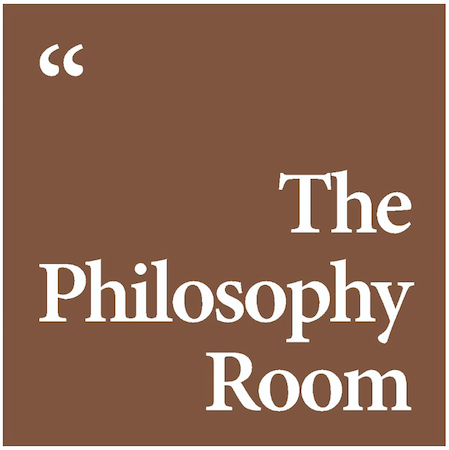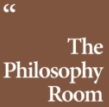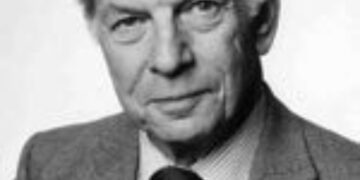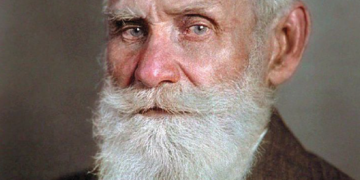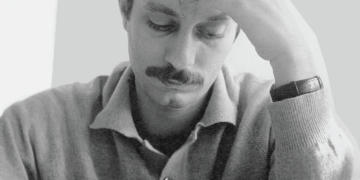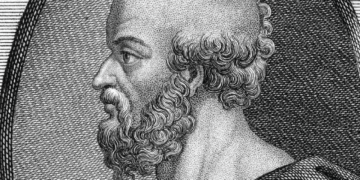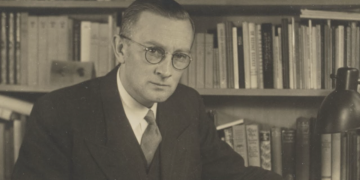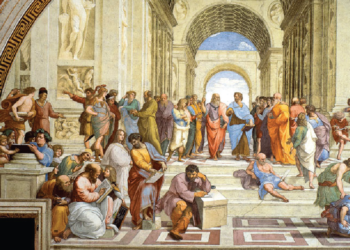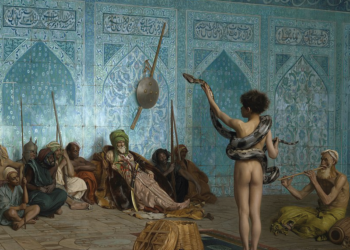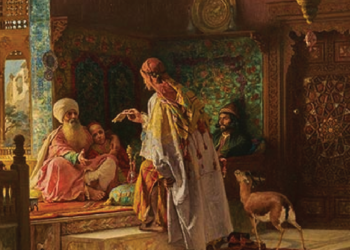Al-Ghazali
1) Biography:
Al-Ghazali, (born 1058, s, Iran—died December 18, 1111, s), Muslim theologian and mystic whose seminal work, “The Revival of the Religious Sciences,” made Sufism a viable part of orthodox Islam. Al-Ghazali was born and educated in Tus, then in Jorin, and finally in Nishapur. Al-Ghazali was invited to the court of Nizam-Al-Mulk, the powerful vizier of the Seljuq sultans, in 1085. The vizier was so impressed by al-Ghazali’s scholarship that in 1091 he appointed him chief professor in the Niẓāmiyyah college in Baghdad.
He experienced a spiritual crisis that rendered him physically incapable of lecturing for a period of time. In November 1095, he gave up his career and fled Baghdad under the guise of going on pilgrimage to Mecca. He disposed of his wealth and took on the life of a poor Sufi, or mystic, to provide for his family. After spending time in Damascus and Jerusalem, as well as a visit to Mecca in November 1096, al-Ghazl settled in s, where he was joined by Sufi disciples in a nearly monastic communal life. He was persuaded to return to teaching at the Nizamiyyah college in Nishapur in 1106. his friends argued that he was the mujahid(renewer) of the life of Islam for the century beginning in September 1106. He continued lecturing in Nishapur at least until 1110, when he returned to Tus, where he died the following year.
“The Revival of the Religious Sciences”, is Al-Ghazali’s most famous work. In 40 “books,” he explained Islamic doctrines and practices and demonstrated how they can be used to form the foundation of a profound devotional life, leading to the higher stages of Sufism, or mysticism. “The Niche for Lights” discusses the relationship of mystical experience to other forms of cognition. The autobiographical work, “Deliverance from error” defends Al-Ghazali’s abandonment of his career and adoption of a mystical, monastic life.
His philosophical studies began with treatises on logic and culminated in “the Incoherence of the Philosophers”, he defended Islam against such philosophers as Ibn-e-Seena who sought to demonstrate certain speculative views contrary to accepted Islamic teaching. Most of his activity was in the field of jurisprudence and theology. Toward the end of his life, he completed a work on general legal principles, al-Mustafa (Essentials).
Al-Ghazali’s decision to forego a brilliant career as a professor in order to live a monastic life won him many admirers and detractors among his contemporaries. Western scholars have been drawn to his account of his spiritual development to the extent that he has received far more attention than other equally important Muslim thinker.
2) His categorization of subjects
The significant work in the field of Educational Philosophy by Al-Ghazali is a few of the forty books that make up Al-Ahya ul Uloom Uddin (Revival of the Religious Sciences). Going through his various writings, we can draw a meaning of education from Al-Ghazali’s perspective. Al-Ghazali sees education as a skill or technique, instead of a science in itself. The main premise of Al-Ghazali’s educational philosophy is the concept of God and His relationship with mankind. Al-Ghazali distinguishes between this worldly life and the life after death. He regards this worldly life as transitory and the life to come as eternal. God is not only the creator of the universe, as well as its attributes and laws, but He is also the source of all events in the world.
3) What does he think should be taught and should not be taught and why?
Al-Ghazali considers awareness and knowledge to be the most important characteristics of a man. He emphasizes that knowledge is derived from two sources: the senses and logics, but he regards both of these sources as weak, resulting in a man knowing only the materialistic aspects of the world in which he lives. Divine revelation, on the other hand, allows him to learn more about the life after death, which he regards as eternal life.
True knowledge, according to Al-Ghazali, is knowledge of God, His books, His prophets, and His creation, including the kingdoms of earth and heaven. It also includes Shariah knowledge as revealed by His Prophet. He considers disciplines such as arithmetic, medicine, and so on to be techniques, and he believes that true knowledge can only be attained if the self has been nurtured through the teachings of the Holy Qur’an. The more one comprehends such knowledge, the better one knows God and draws closer to Him.
4) His teaching method:
According to Imam Al-Ghazali, students in their early stages should avoid listening to opposing viewpoints because this may lead to confusion. Students must defer to research the various points of view in order to gain a thorough understanding of the subject. It is preferable for a student to learn something marginally useful. Once they understand the reason for and purpose of their study, they will be able to deepen their knowledge. They should, however, study the information in the order of importance.
Al-Ghazali signifies that if teachers want to have a maximum impact on children’s moral development, they should be aware of how children’s motivation and interests change during the course of their lives
Al- Ghazali also advised teachers to present their lessons at the level of understanding and achievement of the students’ minds. If some lessons are delivered without considering students’ sense of reason and achievement, they will bring complexity and boredom, which can lead to failure.
Teaching must be a slow yet dynamic procedure, including incitement and inspirations. Al-Ghazali highlights those educating students must be connected to real life circumstances. Teachers should avoid giving abstract examples. Al-Ghazali highlights that children need time to relax through recreations and different exercises to ease the fatigue of their study. As such he recommends that a student must be given reasonable time to play games.
Al-Ghazali emphasizes the importance of the learning environment. The environment encompasses the values, politics, and economics of the society surrounding an institution, all of which influence the curriculum offered by the institution and vice versa. Before entering an institution, the child’s parents serve as the primary role models. The most important role player after entering institutions is the teacher.
5) His ideal curriculum:
The curriculum of education was not strictly defined in Al-era, Ghazali’s but it was flexible, allowing students to choose the subjects they wanted to study. Because Al-Ghazali did not distinguish between the goals of education and the goals of life, he essentially proposed a curriculum for a student’s entire life.
In terms of content, Al-Ghazali divided his curriculum into two parts: obligatory (Farz-e-Ain) and optional (Farz-e-Ain). This includes Qur’anic doctrine, logic, and hygiene. The goal of compulsory education is to teach students how to live their lives as individuals as well as members of the Islamic society. The other is entirely optional (Farz-e-Kifaya) which is considered as compulsory, that is, as a society someone must be doing it, which is not obligatory (farz) on every person. Farz-e-Ain’s goal is to help students develop behavioral skills. Farz-e-Kifaya, on the other hand, is concerned with societal and economic aspects.
As a result, he suggests beginning with the fundamentals: the Qur’an, then Sunnah, Tafsir, and other sciences. According to Al-Ghazali, knowledge is classified into six categories: arithmetic, logic, regular sciences, mysticism, political issues, and morals. Arithmetic, logic, and the regular sciences are not incompatible with religion.
6) Purpose of education:
Al-Ghazali considers getting eternal salvation as the greatest achievement of man. Nofal (1993) articulates Al-Ghazali’s aim of education as “To cultivate man so that he abides by the teachings of religion and is hence assured salvation and happiness in the eternal life hereafter”. Al-Ghazali has also mentioned the development of other aspects of human life through education, which should be the other aims of education; however, he asserts that these aims should support the main purpose of education.
Al-Ghazali recognizes the importance of childhood age in character development. He goes on to say that a good childhood will give children a good character and help them live an honorable life, whereas a bad childhood will ruin their character. It will be difficult to redevelop a character once it has been lost. Education is more than just training the brain by providing it with information, instead it involves all aspects; religious, moral, intellectual and physical personality of the learner.
According to Al-Ghazali, the heart is a spiritual subtlety linked to the physical heart, and this spiritual subtlety is the core of man, which learns, comprehends, and knows. According to Al-Ghazali, the process of education should result in the cleansing of the heart.
To achieve the primary goal, humans must fulfil all of their obligations, including feeding themselves and their families, which is also a Shariah requirement. As a result, man should learn a certain art or gain a certain amount of knowledge that will assist him in achieving the stated goal. Al-Ghazali has also emphasized that, in addition to individual responsibilities, Allah has entrusted him with responsibilities for the development of society. He refers to such responsibilities as Farz-e-Kifaya, for example, a society requires doctors to keep people healthy so that they can fulfil their responsibilities to Allah.
